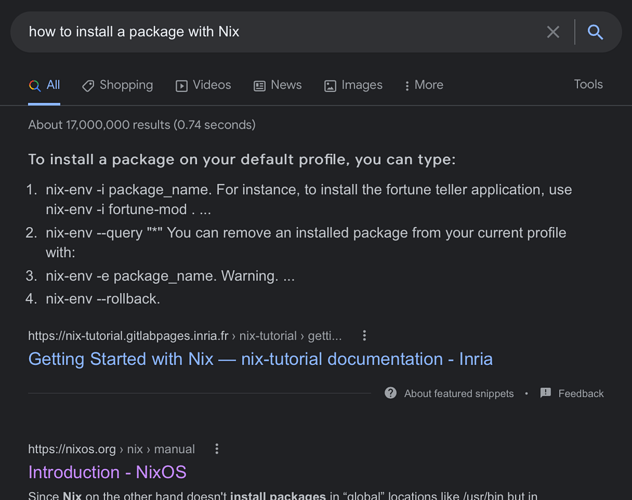This is sort of precisely the problem:
There is a thing in the CLI that maps quite literally to the word install, and yet I think there’s fairly broad agreement that imperatively installing things with nix-env is a tarpit for new users. What do new users need to guess to find an approach successful users would recommend?
I don’t think this has much to do with the “precision terminology” and has everything to do with flakes still being an experimental feature. If/when flakes become canonical, the term will be unavoidable.
